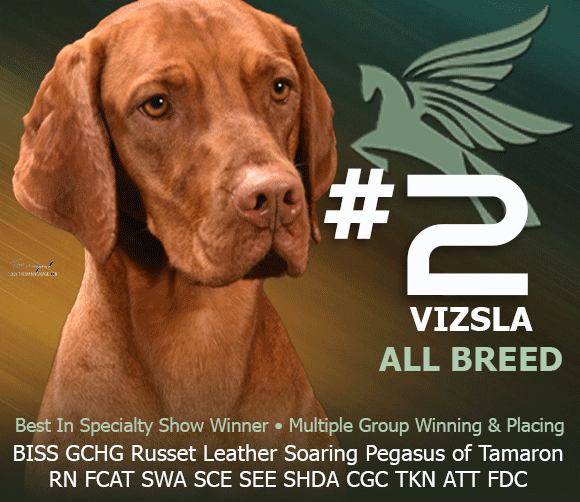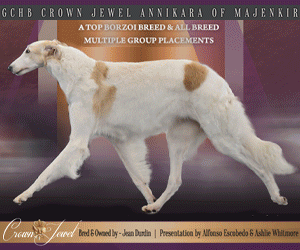From The CC Vault: The Other Kind of Kennel Blind
By Kat Smith
Originally published: August 2019
Most of us can pretty easily define “kennel blind.” We think of the people who post little snippets of their breed standard along with a photo of their dog who objectively does not meet the description. But, more and more, it seems like there is a trend towards another kind of kennel blindness: those people who will happily tell you what they would like to improve in their own dogs, but are completely incapable of seeing the good in other people’s dogs. 
These are the people who tell you, “I don’t mind losing to a good dog,” but, over time, you notice that they have never conceded that it was a reasonable loss. The people who will tell you that their dog is badly out of coat, but, honestly, the other dog was just “so awful” they still should have won anyway. The people who make jokes about how their dog has never been on a lead before and are indignant when the judge puts up something you could see in a trot. The people whose dog behaved so badly on the exam they should be thankful they’ve been allowed to stay in the ring but think they should beat a dog the judge was able to put their hands on. The people whose dog, ringside, sets itself up and walks along beautifully–but they futz and yank and race and ruin it–who are upset at the winner who was unimpressive ringside but flawlessly presented to the judge.
I think this happened because we don’t want to be kennel blind, or at least, we don’t want to be accused of being kennel blind. So, rather than talking up why our dog is so perfect, we talk about how those other dogs are so imperfect. Sorry to say, but tossing out a few crumbs of cushy criticism of your dog does not give you carte blanche to say whatever you want about other people’s dogs; and, you’re still shooting yourself in the foot.
Back when I was a Junior, one of the best skills I learned while working for handlers is how to appreciate a huge variety of dogs of the same breed. One handler in particular showed almost entirely one breed, but the dogs were from different breeders and different lines. As a result, they offered a variety of strengths and styles. She showed me the concept of, “He’s not my style, but he’s a nice dog.” Hand in hand with that ability, she taught me the art of picking the right judge for the right dog. These two things can help you appreciate how to fairly assess other people’s dogs through other people’s eyes.
To help develop this skill, have someone video not only your individual dog, but the entire class or breed. That way, you can ‘Monday-morning quarterback’ study it. After all, you were busy showing your own dog and missed how another dog performed for the judge. If you did get a really good look at the dog while in the ring, perhaps one problem is that you were paying more attention to the other dogs in the ring instead of focusing your own?
With this video, pick out how you can improve. It might be eye-opening to realize that flawless trot around the yard is not being replicated in the ring, or that amazing freestack was, uhm, not so amazing. Set one or two achievable goals for next time. And then, pick out at least one thing that is good about the other peoples’ dogs. I promise, there is at least one. Is it conditioned and groomed so well it creates a pleasing overall picture? Is it trained so well that it never puts a foot down wrong, giving the judge no real suggestion of fault? Is it being moved at the perfect speed? Are you remembering the dog when it was a gangly 10 months old, but he’s now three years and matured nicely? Is she tolerable in something you care about, but incredible in something you don’t prioritize?
This does a few really important things: it helps you see how your dog truly looks in the ring; it gives you context about what qualifies as a fantastic or a mediocre dog in your breed; it helps you hone your eye to the positive qualities of dogs; and, it helps you pick the right judges for your individual dogs. Also helpful, you could have a civilized conversation with fellow breeders about their deal-with and deal-break, and what judges they have had success under or not. This can help you scope out trends. As a bonus, if you find yourself looking for a perfect eye, rear, or coat, you may know just who to ask.
Add all this information to your spreadsheet about the judges (you are keeping one, right?). Between seeing your dog and its competition like a judge does, and having information to help you understand what that specific judge might be looking for, you’ll begin to break the binds of the other kind of kennel blind.
Short URL: http://caninechronicle.com/?p=246862
Comments are closed












